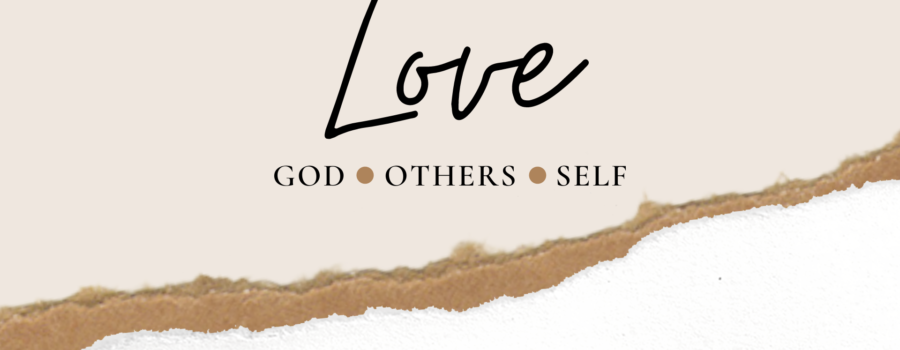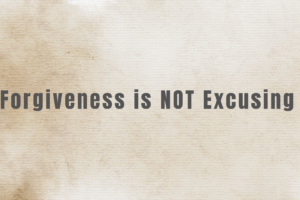Love has and always will be the center of the Christian faith. The very thing we stand on— the death, burial, and resurrection of Jesus Christ our Savior— is all founded upon the everlasting love of the Father for his people (John 3:16). In fact when Jesus is asked “What is the great commandment in the Law,” he tells them, “You shall love the Lord your God with all your heart and with all your soul and with all your mind. This is the great and first commandment. And a second is like it: You shall love your neighbor as yourself. On these two commandments depend all the Law and the Prophets”(Matthew 22:34-40).
We will not do a deep dive into everything this verse means right now, but it is important to see something vital. Jesus tells us the three most important things in scripture— loving God, loving others, and loving ourselves. The whole truth of scripture is pointing us toward those three things. So that means we need to pay attention.
In Christian culture for many years, the focus on teaching from spiritual leaders was on loving God and the love God has for his people. Then there was a shift to loving and serving people. But now there has been another shift— leaders are teaching people to love and take care of themselves in ways never before seen in history. The problem with this pattern is that it is out of balance, no matter how well-meaning. We are not called to do one of these things at a time — we are called to do all three at all times.
In secular culture, the focus is much more about me, myself, and I. We are taught to put ourselves and our needs first, the value of self-care, knowing our needs and making sure they are met at all times. Culture encourages us to love and accept all others, but only in a way that serves the self. And we all know that culture would never want us to love God.
As Christians, we are caught in the middle. We don’t know how to live loved and live loving. We either give all of ourselves away and neglect to care for ourselves, or we only care about ourselves and neglect to show love to others. And our love for God gets lost somewhere. We forget that we are not even really capable of loving well if we do not love God and embrace the love He has for us.
The first relationship that needs to be cultivated is our relationship with the Father. If that is not healthy and thriving, nothing else will matter.
But then we need to think about the tension of trying to balance loving others and loving ourselves. Taking care of them and taking care of ourselves. Considering them and considering ourselves. How do we do this well?
It is such a hard question, but one we will begin to look at more closely over the next few weeks here. For now, we simply need to pay attention to our lives.
Do you spend time taking care of yourself?
How much time?
Do you know your needs?
Are those needs getting met?
Do you know any deficits in your spiritual health, emotional health, physical health, or relational health?
Do you tend to think about yourself more than you think about others?
Do you spend time caring for others?
How much time?
Do you know their needs? (Not everyone, but our friends, family, church family, work relationships?)
When is the last time you intentionally did something to meet the need of another person?
Do you think about others more than you think about yourself?
Take some time to reflect on this. Look at your calendar. See how you fill your days. Is any of that time set aside for you? Time to exercise or doing something you love or going to therapy? Is any of it for you? If not, it’s time to carve out time for yourself. You matter, too. Is any time set aside for others? For your family or friends or serving? If not, it’s time to be intentional with others— to pay attention to them, to what they need from you. It’s time to love on them. They matter, too. And if your relationship with God is missing or unhealthy, it’s time to open your bible and spend time in prayer and wrap the love of God around you again. He matters most of all.
If you need guidance in this, seek a friend or mentor or have a chat about it with your counselor or pastor. You don’t have to do it alone. In fact, it’s impossible to try to love well by yourself. Our prayer at Full Life is that you would lean into this holistic love in 2021, and we are thankful to be along for the ride.





Recent Comments